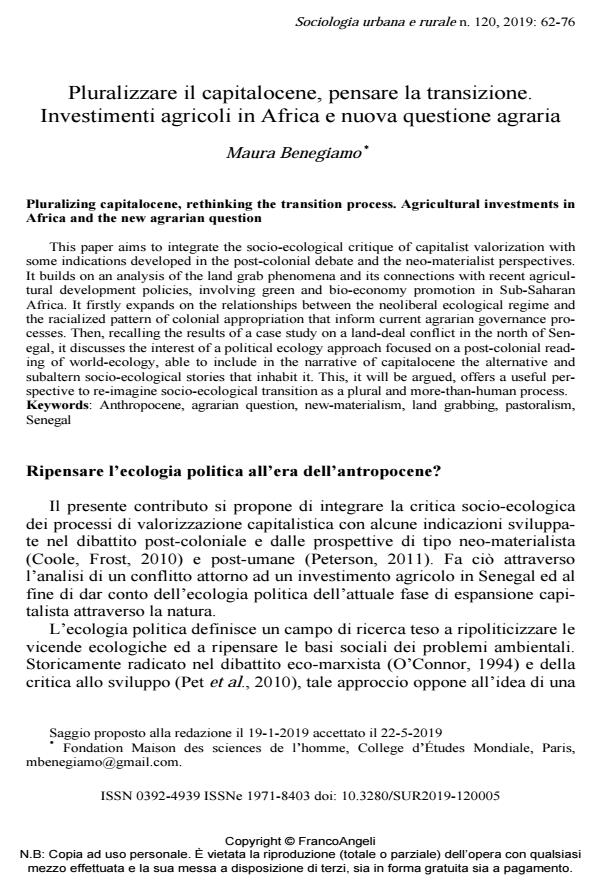Pluralizing capitalocene, rethinking the transition process. Agricultural investments in Africa and the new agrarian question
Journal title SOCIOLOGIA URBANA E RURALE
Author/s Maura Benegiamo
Publishing Year 2019 Issue 2019/120
Language Italian Pages 15 P. 62-76 File size 199 KB
DOI 10.3280/SUR2019-120005
DOI is like a bar code for intellectual property: to have more infomation
click here
Below, you can see the article first page
If you want to buy this article in PDF format, you can do it, following the instructions to buy download credits

FrancoAngeli is member of Publishers International Linking Association, Inc (PILA), a not-for-profit association which run the CrossRef service enabling links to and from online scholarly content.
This paper aims to integrate the socio-ecological critique of capitalist valorization with some indications developed in the post-colonial debate and the neo-materialist perspectives. It builds on an analysis of the land grab phenomena and its connections with recent agricultural development policies, involving green and bio-economy promotion in Sub-Saharan Africa. It firstly expands on the relationships between the neoliberal ecological regime and the racialized pattern of colonial appropriation that inform current agrarian governance processes. Then, re-calling the results of a case study on a land-deal conflict in the north of Senegal, it discusses the interest of a political ecology approach focused on a post-colonial reading of world-ecology, able to include in the narrative of capitalocene the alternative and subaltern socio-ecological stories that inhabit it. This, it will be argued, offers a useful perspective to re-imagine socio-ecological transition as a plural and more-than-human process.
Keywords: Anthropocene, agrarian question, new-materialism, land grabbing, pastoralism, Senegal
Maura Benegiamo, Pluralizzare il capitalocene, pensare la transizione. Investimenti agricoli in Africa e nuova questione agraria in "SOCIOLOGIA URBANA E RURALE" 120/2019, pp 62-76, DOI: 10.3280/SUR2019-120005